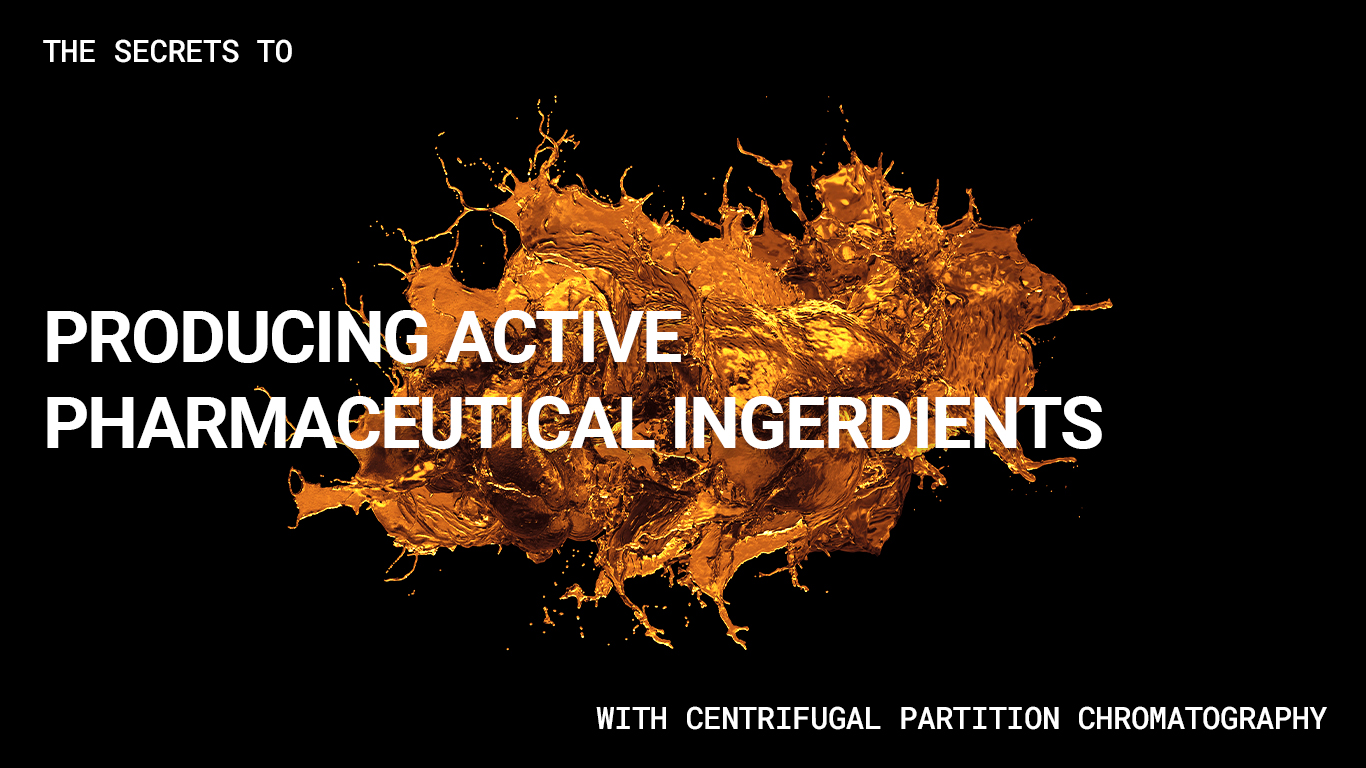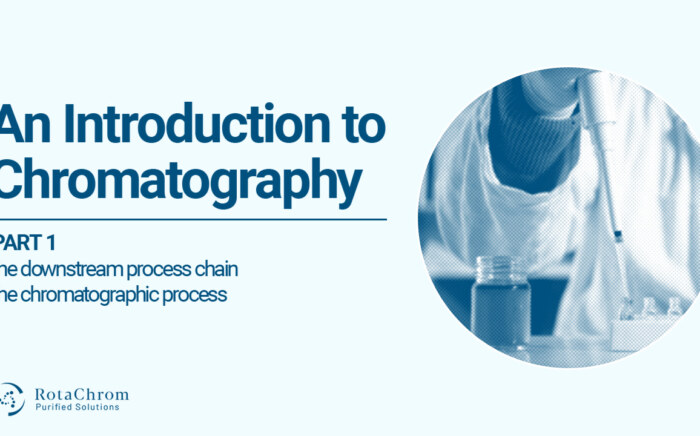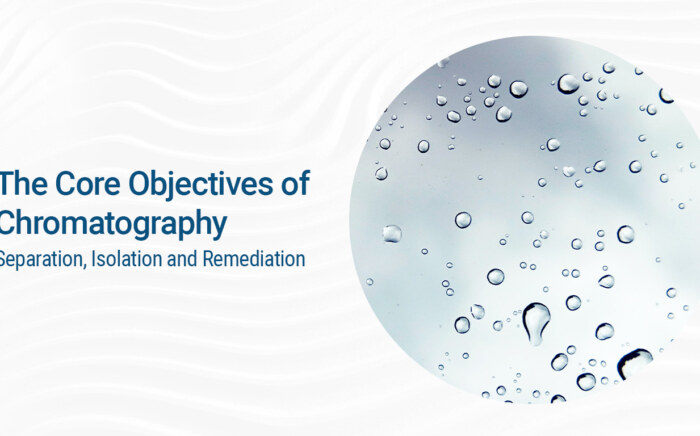Increasing separation efficiency by pH adjustment in Centrifugal Partition Chromatography
NewsThe manufacture of small molecule Active Pharmaceutical Ingredients (APIs) is a multifaceted process that demands specialized facilities, regulatory expertise, chemistry proficiency, and efficient supply chain management. In order to address these challenges, many pharmaceutical innovators opt to collaborate with Contract Development and Manufacturing Organizations (CDMOs) for the production of their APIs. A robust and effective process for manufacturing APIs or key intermediates is crucial to ensure high purity pharmaceutical products. Depending on the product characteristics and process requirements, various techniques can be employed, and one commonly used method is preparative chromatography. Preparative chromatography is a powerful approach for separating, purifying, and isolating substances from complex mixtures, making it a popular choice in API manufacturing.
The manufacturing of APIs involves the production of biologically active substances that are used as the active ingredients in medicinal products. These APIs can be derived from various sources and can be synthesized chemically or produced through fermentation processes. APIs are typically formulated into finished dosage forms, such as tablets, capsules, or injections, which are then distributed to patients for therapeutic use. Alternatively, APIs can also be supplied as standalone products to other pharmaceutical manufacturers for further formulation.
The production of APIs is a highly regulated process to ensure the purity and quality of the active ingredient. Strict quality standards must be met, and the manufacturing process must be meticulously controlled to ensure consistency and compliance with specifications. Factors such as yield, cost, and scalability are also important considerations in API manufacturing, as APIs are typically produced in large quantities to meet market demand. Developing an efficient and cost-effective manufacturing process that can be scaled up is crucial to meet production requirements.
CDMOs and Active Pharmaceutical Ingredients Manufacturing
To navigate the complexities of API manufacturing, many pharmaceutical innovators partner with Contract Development and Manufacturing Organizations (CDMOs). CDMOs specialize in providing comprehensive services for the development, optimization, and production of APIs. They have the expertise, facilities, and regulatory experience to meet the stringent requirements of API manufacturing.
CDMOs offer a wide range of services, including process development, process optimization, scale-up, and commercial manufacturing of APIs. They work closely with pharmaceutical companies to develop robust and effective manufacturing processes that meet the quality standards, yield targets, and cost considerations of the project. CDMOs also provide regulatory support to ensure compliance with regulatory guidelines and requirements.
Preparative Chromatography in API Manufacturing
Preparative chromatography is a widely used method in API manufacturing for separation, purification, and isolation of substances from complex mixtures. It is a powerful technique that allows for the separation and purification of APIs from impurities, by exploiting differences in their physicochemical properties, such as size, charge, or polarity. Preparative chromatography can be employed at various stages of the API manufacturing process, including the isolation of the API from natural sources, the purification of synthesized APIs, and the removal of impurities from API intermediates.
Preparative chromatography can be used to achieve high levels of purity and yield, making it an essential technique in the production of high-quality APIs. It requires expertise in chromatographic methods, equipment, and optimization to develop and implement an efficient and effective preparative chromatography process. CDMOs with expertise in chromatography can provide valuable support in developing and optimizing preparative chromatography processes for API manufacturing.
Producing Active Pharmaceutical Ingredients with RotaChrom
RotaChrom’s Industrial-Scale Centrifugal Partition Chromatography (CPC) technology is a groundbreaking method for preparative purification of APIs. Unlike traditional chromatographic methods that use solid stationary phases, RotaChrom’s technology utilizes a liquid-liquid approach for precise molecular separation. This innovative system offers several advantages, including higher yield and purity, reduced costs, and simplified downstream method development for a wide range of purification tasks.
In RotaChrom’s CPC technology, there is no need for silica gel, which is commonly used in traditional chromatography methods. Instead, the separation occurs between two immiscible liquid phases. One of the phases acts as the stationary phase, and it is maintained in place during the separation process by a strong centrifugal force. This allows for high sample volumes to be loaded, as the solutes can access the entire volume of the liquid stationary phase.
One of the advantages of liquid-liquid chromatography (LLC) is the ability to achieve complete sample recovery, as it eliminates the issue of irreversible adsorption that can occur in solid-phase chromatography. This can be particularly beneficial in API manufacturing, where the recovery of the target API is crucial to ensure high purity and yield. RotaChrom’s CPC technology offers the advantage of efficient sample recovery, which can contribute to increased yield and cost savings.
Furthermore, RotaChrom’s CPC technology simplifies downstream method development, as it does not require the use of solid stationary phases that can be complex and time-consuming to optimize. The liquid-liquid approach of CPC allows for easier method development and optimization, which can lead to more streamlined and efficient manufacturing processes for API production.
In summary, RotaChrom’s Industrial-Scale Centrifugal Partition Chromatography (CPC) technology is a groundbreaking method for preparative purification of APIs that utilizes a liquid-liquid approach. This innovative system offers advantages such as higher yield and purity, reduced costs, and simplified downstream method development. The use of liquid-liquid chromatography in RotaChrom’s CPC technology allows for efficient sample recovery and can contribute to improved API manufacturing processes.
Further Resources
To learn more about CPC and chromatography in general, click any of the links below.



